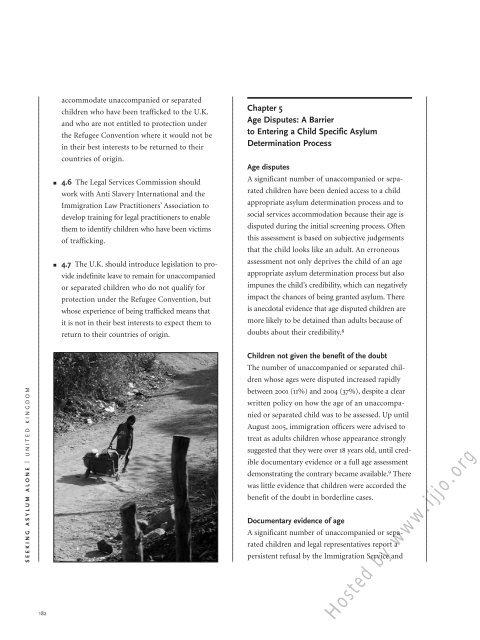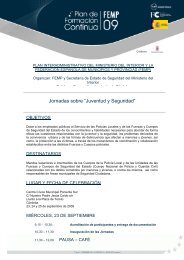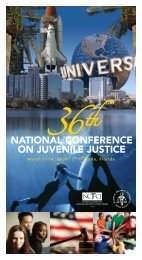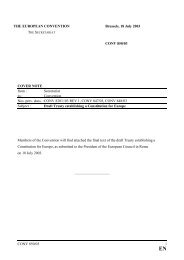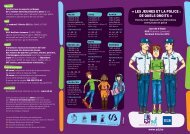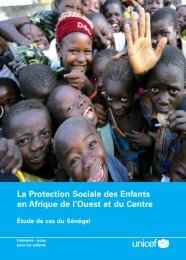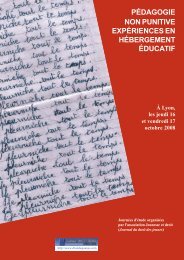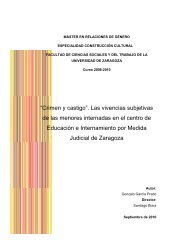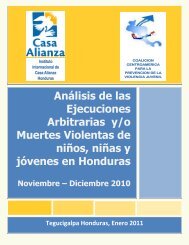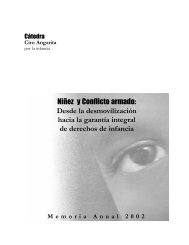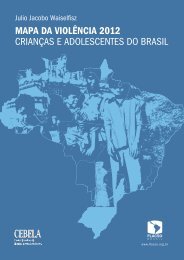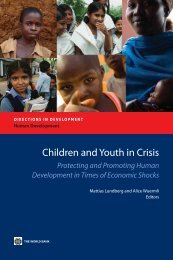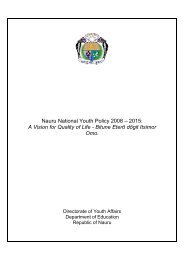Hosted by www.ijjo.org
Hosted by www.ijjo.org
Hosted by www.ijjo.org
You also want an ePaper? Increase the reach of your titles
YUMPU automatically turns print PDFs into web optimized ePapers that Google loves.
■<br />
■<br />
accommodate unaccompanied or separated<br />
children who have been trafficked to the U.K.<br />
and who are not entitled to protection under<br />
the Refugee Convention where it would not be<br />
in their best interests to be returned to their<br />
countries of origin.<br />
4.6 The Legal Services Commission should<br />
work with Anti Slavery International and the<br />
Immigration Law Practitioners’ Association to<br />
develop training for legal practitioners to enable<br />
them to identify children who have been victims<br />
of trafficking.<br />
4.7 The U.K. should introduce legislation to provide<br />
indefinite leave to remain for unaccompanied<br />
or separated children who do not qualify for<br />
protection under the Refugee Convention, but<br />
whose experience of being trafficked means that<br />
it is not in their best interests to expect them to<br />
return to their countries of origin.<br />
Chapter 5<br />
Age Disputes: A Barrier<br />
to Entering a Child Specific Asylum<br />
Determination Process<br />
Age disputes<br />
A significant number of unaccompanied or separated<br />
children have been denied access to a child<br />
appropriate asylum determination process and to<br />
social services accommodation because their age is<br />
disputed during the initial screening process. Often<br />
this assessment is based on subjective judgements<br />
that the child looks like an adult. An erroneous<br />
assessment not only deprives the child of an age<br />
appropriate asylum determination process but also<br />
impunes the child’s credibility, which can negatively<br />
impact the chances of being granted asylum. There<br />
is anecdotal evidence that age disputed children are<br />
more likely to be detained than adults because of<br />
doubts about their credibility. 8<br />
SEEKING ASYLUM ALONE | UNITED KINGDOM<br />
182<br />
Children not given the benefit of the doubt<br />
The number of unaccompanied or separated children<br />
whose ages were disputed increased rapidly<br />
between 2001 (11%) and 2004 (37%), despite a clear<br />
written policy on how the age of an unaccompanied<br />
or separated child was to be assessed. Up until<br />
August 2005, immigration officers were advised to<br />
treat as adults children whose appearance strongly<br />
suggested that they were over 18 years old, until credible<br />
documentary evidence or a full age assessment<br />
demonstrating the contrary became available. 9 There<br />
was little evidence that children were accorded the<br />
benefit of the doubt in borderline cases.<br />
Documentary evidence of age<br />
A significant number of unaccompanied or separated<br />
children and legal representatives report a<br />
persistent refusal <strong>by</strong> the Immigration Service and<br />
<strong>Hosted</strong> <strong>by</strong> <strong>www</strong>.<strong>ijjo</strong>.<strong>org</strong>


